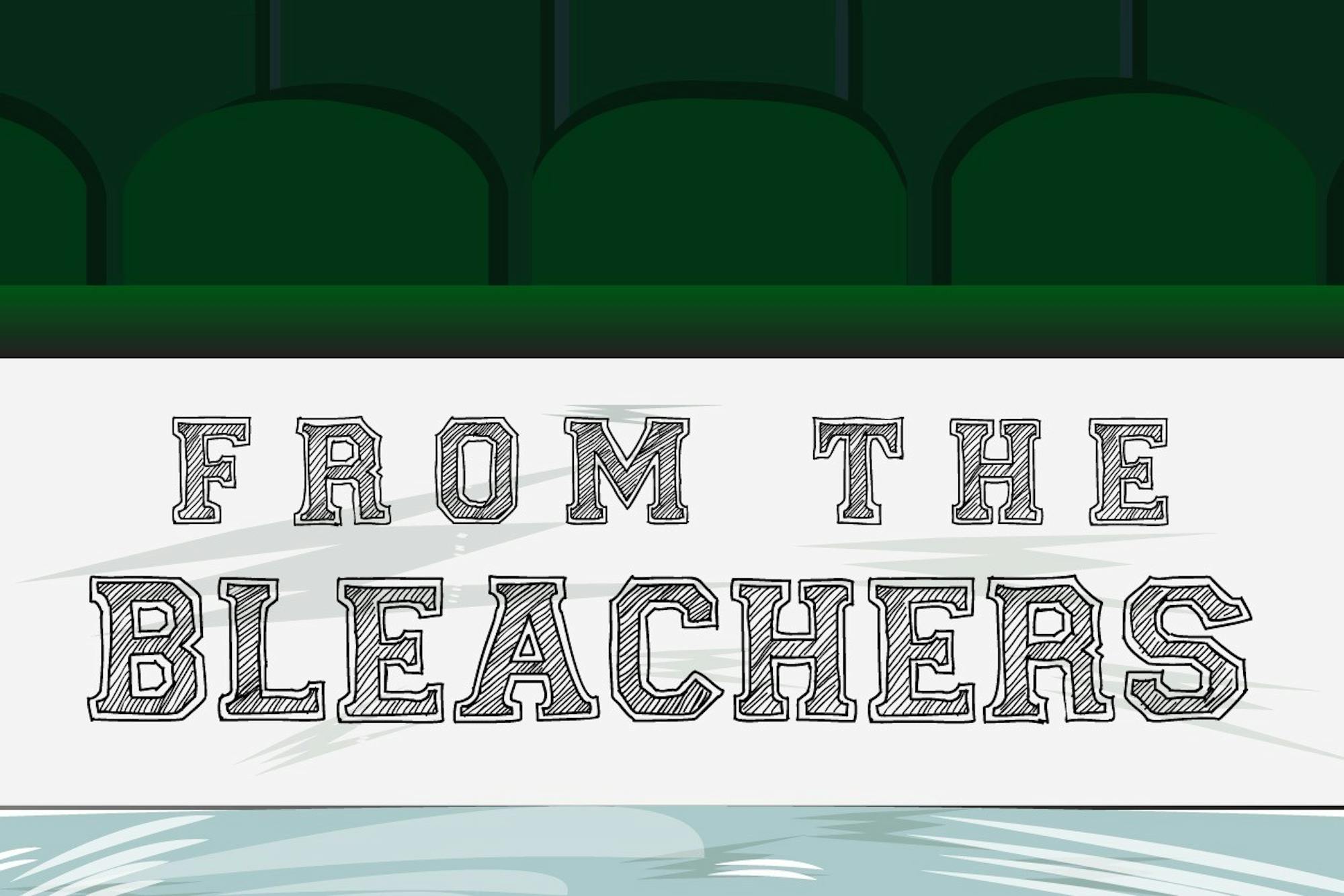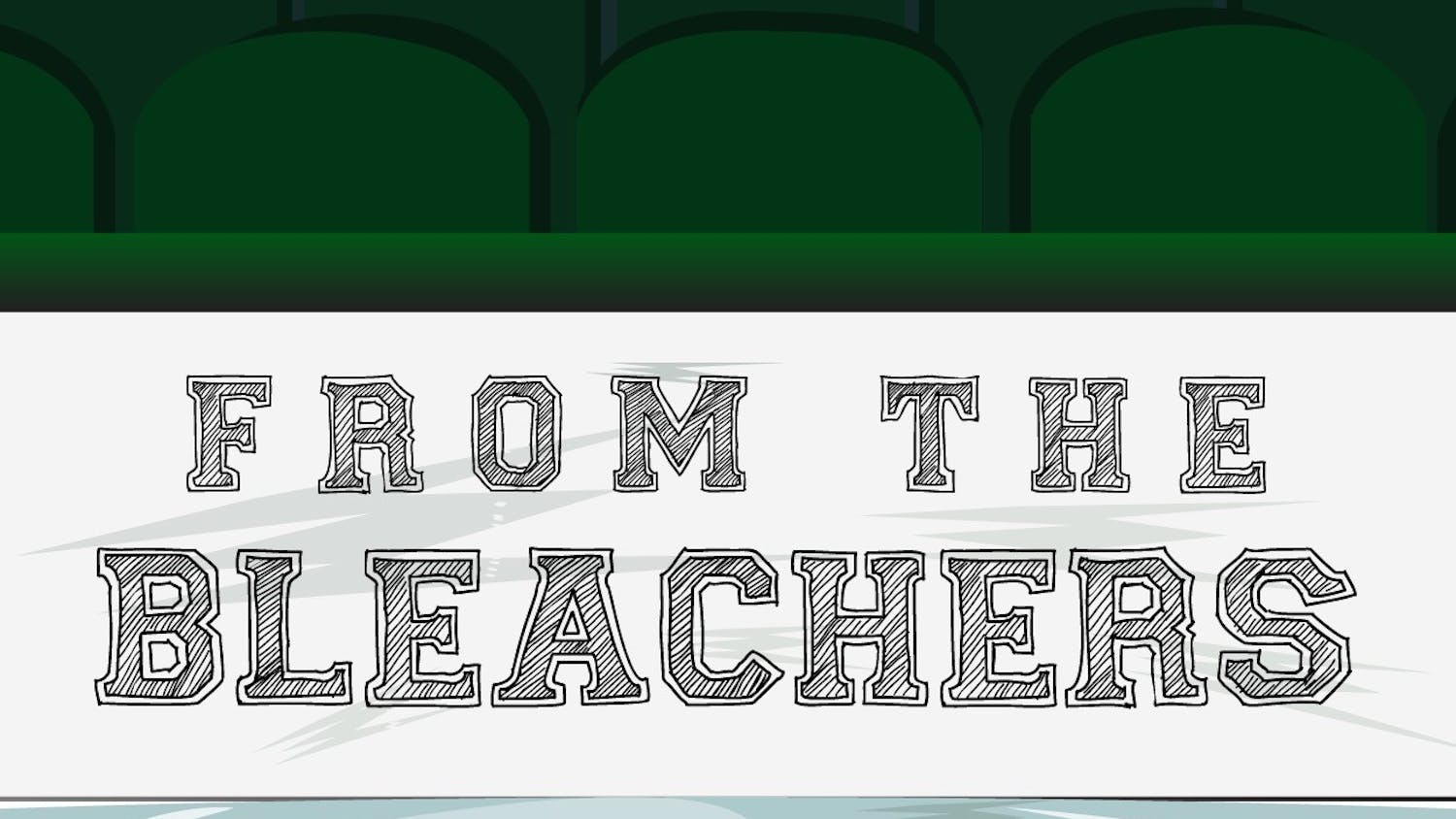In 2000, the Los Angeles Lakers won an NBA championship with Shaquille O’Neal as Finals MVP. In 2010, the Lakers won an NBA championship with Kobe Bryant as Finals MVP. In 2020, the Lakers emerged victorious once again, with a new face of the franchise taking home the hardware.
LeBron James won his fourth championship and fourth Finals MVP on Sunday night, with the Lakers defeating the Miami Heat 106-93 in the decisive Game 6. While the final score was relatively close, the game wasn’t; the Lakers led by as much as 36 in the clincher. Their defense was suffocating, their stars were elite as always and their role players were effective.
Miami was far from its best in Game 6, but it deserves recognition for an outstanding playoff run. Jimmy Butler was heroic in Game 3 and Game 5, Duncan Robinson and Tyler Herro were unfazed shooting in big moments throughout the postseason and Bam Adebayo cemented himself as one of the best big men in the league. With a strong, young core, the Heat will remain in contention for a championship for years to come.
For Los Angeles, this title run through the trials and tribulations of the NBA bubble marks a fascinating new chapter in the storied history of basketball’s most legendary franchise. Earlier this year, ESPN ranked the top 10 players in NBA history, and, remarkably, six of them, including James, played for the purple and gold. The previous five had all brought a championship home to Staples Center.
Yet James wasn’t joining a juggernaut when he signed with the Lakers in July 2018. As I noted in my previous column, the Lakers had the league’s worst cumulative record in the five seasons before James signed. Many thought he chose to sign with Los Angeles to make movies and enjoy the Hollywood lifestyle at the expense of winning. If he wanted to add another championship to his resume, he had his work cut out for him.
He got off to a decent start last year, as the Lakers were 20-14 and in fourth place in the West around Christmas. But it was then that James injured his groin and missed 27 games, with the Lakers stumbling to a 9-18 record in his absence. For the first time since 2005, James missed the playoffs. With the King set to turn 35 the next year, many thought the Lakers — and the closeout to James’ career — were doomed for mediocrity.
But in the offseason, the Lakers made the move they needed to make another run at a title. Acquiring Anthony Davis, a top 10 (arguably top 5) player throughout his career, provided James with the best sidekick of his career. In seven seasons with the New Orleans Pelicans, Davis had only won one playoff series, but he was consistently dominant for a franchise that never surrounded him with the right pieces. Playing for the Lakers marked his first legitimate chance to contend for a ring.
Still, FiveThirtyEight gave the Lakers only the seventh-best odds (3%) to win it all at the start of the season. Besides James and Davis, the Lakers lacked a legitimate third option, as well as overall depth. The Los Angeles Clippers, on the other hand, added Kawhi Leonard and Paul George to a team that had won 48 games the season before. The Houston Rockets added Russell Westbrook to a team that nearly made the Finals the year before. The Denver Nuggets’ young core figured to be even better after earning the second seed the previous season. And who could forget the Golden State Warriors?
It was the Lakers, however, who cemented themselves as the best team early on in the regular season, never letting go of the first seed. Before the bubble, they were the best team in the West.
The same was true throughout their bubble run. While there were some bumps along the road, including Game 1 clunkers in their first two series, the Lakers finished the playoffs with a tremendous 16-5 record. Even the Big 3 Miami Heat teams that James led to a ring never had such a dominant playoff record (both championship teams finished 16-7). The Lakers were magnificent, and they deserve to be crowned champions.
So what does it mean in the bigger picture? For Los Angeles, it marks the franchise’s 17th championship, tying the Boston Celtics for the most in NBA history. While Boston has only won one ring since 1986, the Lakers have won eight, six of those coming since the turn of the century. Even with a few down years in the past decade, the Lakers are the most dominant franchise of the 21st century.
For “washed up” role players like Rajon Rondo and Dwight Howard, the championship means everything. Rondo isn’t who he once was, but he was effective throughout the playoffs and was phenomenal in Game 6. Howard is no longer the force in the paint that he used to be, but he provided effective rebounding and paint play for most of the postseason. And let’s not forget Kentavious Caldwell-Pope, Alex Caruso, Danny Green and Kyle Kuzma, all of whom had their moments along the way.
For Davis, it’s quite possibly the start of a legendary career. He ranks third all-time in player efficiency rating, and after averaging 27.7 points per game and shooting 57% throughout the playoffs, it’s clear that he is unfazed by the big stage. In the early 2000s, Shaq couldn’t have won his three Finals MVPs without Kobe by his side. Davis and James are well on their way to establishing a similar legacy.
For James, it’s yet another accolade in what I believe to be the greatest career in the history of basketball. He is now the first player in NBA history to win a Finals MVP for three different franchises, and he hasn’t just won by joining established teams and pushing them over the edge (aka Kevin Durant).
At the age of 35, he averaged 29.8 points per game, 11.8 rebounds per game and 8.5 assists per game in the Finals. He never scored fewer than 25 in any game. His performance in Game 5 was legendary; his seven consecutive points in the final minutes (as well as a perfect pass to Danny Green for what would have been the game-winner and an iconic Michael Jordan to Steve Kerr moment) proved that he is clutch. In Game 6, he was methodical with a 28-point triple-double, making sure the Heat never had a chance to repeat the same 3-1 comeback that James is quite familiar with.
James doesn’t have a lot of time left in this league, and he is no longer at his athletic peak. Yet he continues to adapt to new environments and invent new ways to win. Winning a championship for the Lakers in the most unique situation the league has ever seen is just one of many reasons why James is the best to ever play the game. Now, the only question left to answer is whether he can do it again next season.


